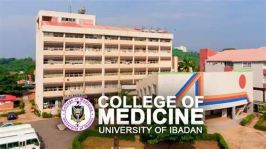Which University Has the Best Medical School in Nigeria?
The pursuit of medical education in Nigeria is both a prestigious and challenging path. For decades, Nigeria has been home to several universities with outstanding medical programs that have produced some of the finest doctors not only in the country but also globally. Aspiring medical professionals often wonder which university stands out when it comes to medical education. In this comprehensive guide, we’ll explore the universities with the best medical schools in Nigeria, the unique features of each institution, and why they remain top choices for medical students.
1. University of Ibadan (UI) – College of Medicine
The Pioneering Institution
The University of Ibadan (UI) is often considered the birthplace of modern medical education in Nigeria. Established in 1948, it is Nigeria’s oldest university, and its College of Medicine is one of the finest and most respected in the country. Initially a part of the University of London, UI became independent in 1962, and its medical school quickly gained a reputation for academic excellence.
Why UI is the Best
UI has been consistently ranked as the best university in Nigeria, and this extends to its medical school. Its teaching hospital, the University College Hospital (UCH) in Ibadan, is a pioneer in medical services and has been at the forefront of clinical research and healthcare provision in Nigeria. UCH is the first teaching hospital in Nigeria, which gives UI a historical edge in medical education.
The College of Medicine at UI offers a comprehensive curriculum covering all areas of medical practice, including internal medicine, surgery, obstetrics and gynecology, pediatrics, and public health. The institution’s graduates are known for their exceptional skills and knowledge, with many going on to achieve significant global recognition in medicine.
Research and Clinical Exposure
Research is a significant part of UI’s medical program. The university has established itself as a leader in medical research, particularly in areas such as infectious diseases, public health, and tropical medicine. Medical students at UI are exposed to hands-on clinical experience early in their training, with access to UCH’s wide range of departments and units, which include specialized areas like oncology, neurology, and cardiology.
Notable Alumni
Many of Nigeria’s top medical professionals are alumni of UI’s medical school. Notable figures include Dr. Oritsejafor Abayomi, a prominent figure in public health, and Professor Isaac Adewole, former Minister of Health in Nigeria.
2. Obafemi Awolowo University (OAU) – College of Health Sciences
Historical Prestige
Established in 1961, Obafemi Awolowo University (OAU), located in Ile-Ife, is another prestigious institution with a leading medical school. The College of Health Sciences is one of the largest and most comprehensive in Nigeria, offering a wide range of medical courses and specializations.
Academic Excellence and Training
OAU’s medical school is renowned for its rigorous academic program that ensures graduates are not only well-versed in medical theory but are also competent in clinical practice. The college offers both undergraduate and postgraduate medical programs, and the curriculum is designed to produce well-rounded medical professionals.
OAU’s teaching hospital, the Obafemi Awolowo University Teaching Hospitals Complex (OAUTHC), is one of the best-equipped teaching hospitals in Nigeria. The hospital provides students with access to a wide variety of clinical cases, ensuring they gain practical experience in handling medical conditions from diverse patient demographics.
Strengths in Medical Research
OAU is also known for its strong emphasis on research, especially in tropical diseases, maternal health, and pediatrics. The medical school collaborates with several international institutions, enhancing research opportunities for both staff and students. The school’s research output has significantly impacted healthcare policy in Nigeria, particularly in the areas of malaria control and maternal healthcare.
Alumni Impact
OAU’s College of Health Sciences has produced many successful medical practitioners who have made their mark globally. Some notable alumni include Professor Folasade Ogunsola, a specialist in infectious diseases, and Dr. Mobolaji Olukoya, a renowned pediatrician.
3. University of Lagos (UNILAG) – College of Medicine
Urban Edge and Medical Excellence
The University of Lagos (UNILAG), situated in the bustling city of Lagos, provides a unique urban advantage. Its College of Medicine, established in 1962, is located at the Idi-Araba campus and is one of the leading medical schools in Nigeria. UNILAG offers a competitive and comprehensive medical program that is well-regarded for producing highly skilled doctors.
Teaching Hospital and Clinical Exposure
UNILAG’s medical students receive clinical training at the Lagos University Teaching Hospital (LUTH), one of Nigeria’s largest and most prominent teaching hospitals. LUTH offers an unparalleled range of clinical experiences due to its location in Lagos, Nigeria’s most populous city. Students have the opportunity to work with a diverse patient population, handling a variety of medical conditions, from tropical diseases to advanced surgical cases.
Focus on Innovation
One of the major strengths of UNILAG’s College of Medicine is its commitment to innovation in medical training and research. The institution has been at the forefront of medical research in fields like infectious diseases, reproductive health, and medical technology. The collaboration between the medical school and Lagos’ dynamic healthcare industry gives students access to cutting-edge medical practices and research.
Renowned Alumni
UNILAG’s medical school has produced many notable medical professionals, including Dr. Bennet Omalu, the Nigerian-American physician known for his pioneering work in the study of Chronic Traumatic Encephalopathy (CTE).
4. Ahmadu Bello University (ABU) – College of Medical Sciences
Northern Nigeria’s Medical Hub
Ahmadu Bello University (ABU), located in Zaria, Kaduna State, is the largest university in Nigeria and has one of the best medical schools in the northern part of the country. The university’s College of Medical Sciences was established in 1967 and is renowned for its strong academic and research culture.
A Comprehensive Medical Program
ABU offers a comprehensive medical program with a strong focus on training doctors who are equipped to handle the healthcare challenges of northern Nigeria and beyond. The college offers degrees in medicine, surgery, and related health sciences, with a robust postgraduate program in medical specialties.
Clinical Training and Teaching Hospital
ABU’s medical students are trained at the Ahmadu Bello University Teaching Hospital (ABUTH), one of the largest and most equipped teaching hospitals in West Africa. The hospital provides extensive clinical exposure in areas such as trauma, surgery, and infectious diseases, particularly in regions where healthcare access is limited.
Research and Rural Healthcare
ABU is known for its research in public health, with particular focus on rural healthcare delivery and the management of diseases that disproportionately affect northern Nigeria, such as malaria and tuberculosis. The medical school’s research has played a key role in shaping healthcare policies in the region.
Notable Graduates
ABU’s College of Medical Sciences has produced some of the most respected doctors and healthcare professionals in Nigeria, including Dr. Akinola Majeed, a prominent cardiothoracic surgeon, and Dr. Fatima Kyari, an expert in ophthalmology.
5. University of Nigeria, Nsukka (UNN) – College of Medicine
A Legacy of Excellence
The University of Nigeria, Nsukka (UNN), established in 1960, is one of the top universities in Nigeria with a reputable medical school. The university’s College of Medicine is located at its Enugu campus and is widely respected for its medical training and research capabilities.
Medical Curriculum and Training
UNN offers an undergraduate medical program that is highly competitive. The curriculum is designed to provide a balance between theoretical knowledge and clinical practice, ensuring that students are well-prepared for the challenges of modern medicine. The program also places a significant emphasis on research, with students encouraged to engage in scientific inquiry from the early stages of their education.
Teaching Hospital and Research Institutes
UNN’s medical students undergo clinical training at the University of Nigeria Teaching Hospital (UNTH), which is one of the leading healthcare facilities in the southeastern region of Nigeria. The hospital is well-equipped and provides students with exposure to a wide range of medical conditions and treatment approaches.
In terms of research, UNN is particularly strong in fields like cardiology, pediatrics, and surgery. The university’s research centers focus on advancing healthcare in areas such as non-communicable diseases, public health, and indigenous medical practices.
Renowned Medical Professionals
UNN has produced many accomplished medical professionals, including Dr. Ernest Eze, a leading expert in pediatric surgery, and Dr. Ezinne Nwachukwu, a prominent obstetrician and gynecologist.
6. Lagos State University (LASU) – College of Medicine
State-of-the-Art Medical School
Lagos State University (LASU), established in 1983, is one of the newer institutions with a rapidly growing reputation for excellence in medical education. LASU’s College of Medicine, located in Ikeja, Lagos, offers a modern approach to medical training, combining innovative teaching methods with clinical exposure.
Collaboration with Lagos State Healthcare
LASU’s medical school benefits from its close collaboration with Lagos State’s healthcare system. Students are trained at the Lagos State University Teaching Hospital (LASUTH), which is one of the top state-owned teaching hospitals in the country. LASUTH provides a robust clinical training environment where students are exposed to a broad spectrum of medical cases.
Research and Innovation
LASU is also emerging as a center for medical research, with growing contributions in areas such as maternal health, infectious diseases, and healthcare management. The university encourages students to engage in research early, promoting a culture of scientific inquiry and innovation.
Graduates and Impact
LASU’s medical school graduates are known for their clinical skills and problem-solving abilities. The institution has quickly become a preferred choice for students seeking a medical education with a focus on practical experience.
Conclusion
Determining the best medical school in Nigeria depends on various factors, including the quality of education, research opportunities, clinical exposure, and the overall environment for personal and professional growth. However, based on academic performance, research output, and historical significance, the University of Ibadan (UI) remains the leading medical school in Nigeria. Its combination of a rich academic tradition, outstanding clinical training at the University College Hospital, and significant contributions to medical research set it apart from other institutions.
Nevertheless, other universities like Obafemi Awolowo University (OAU), University of Lagos (UNILAG), Ahmadu Bello University (ABU), and University of Nigeria, Nsukka (UNN) also offer excellent medical programs, each with unique strengths. These institutions have consistently produced top-tier medical professionals who have made a lasting impact on healthcare in Nigeria and beyond.
Ultimately, aspiring medical students should consider their personal goals, preferred location, and the specific strengths of each medical school when choosing where to pursue their medical education.
FAQs
1. Which medical school in Nigeria offers the best clinical exposure?
The University of Lagos (UNILAG) offers one of the best clinical exposures due to its affiliation with Lagos University Teaching Hospital (LUTH), which serves a large and diverse population.
2. What factors should I consider when choosing a medical school in Nigeria?
Key factors to consider include the university’s academic reputation, the quality of clinical training, available research opportunities, and the institution’s location.
3. Which university has the oldest medical school in Nigeria?
The University of Ibadan (UI) has the oldest medical school in Nigeria, established in 1948.
4. Are there good private medical schools in Nigeria?
Yes, private universities like Babcock University and Covenant University offer competitive medical programs, though public institutions like UI and OAU still dominate in terms of reputation and history.
5. What is the admission process like for medical schools in Nigeria?
Admission to medical schools in Nigeria is highly competitive and generally requires high scores in both the national entrance exams (JAMB) and post-UTME exams conducted by individual universities.


